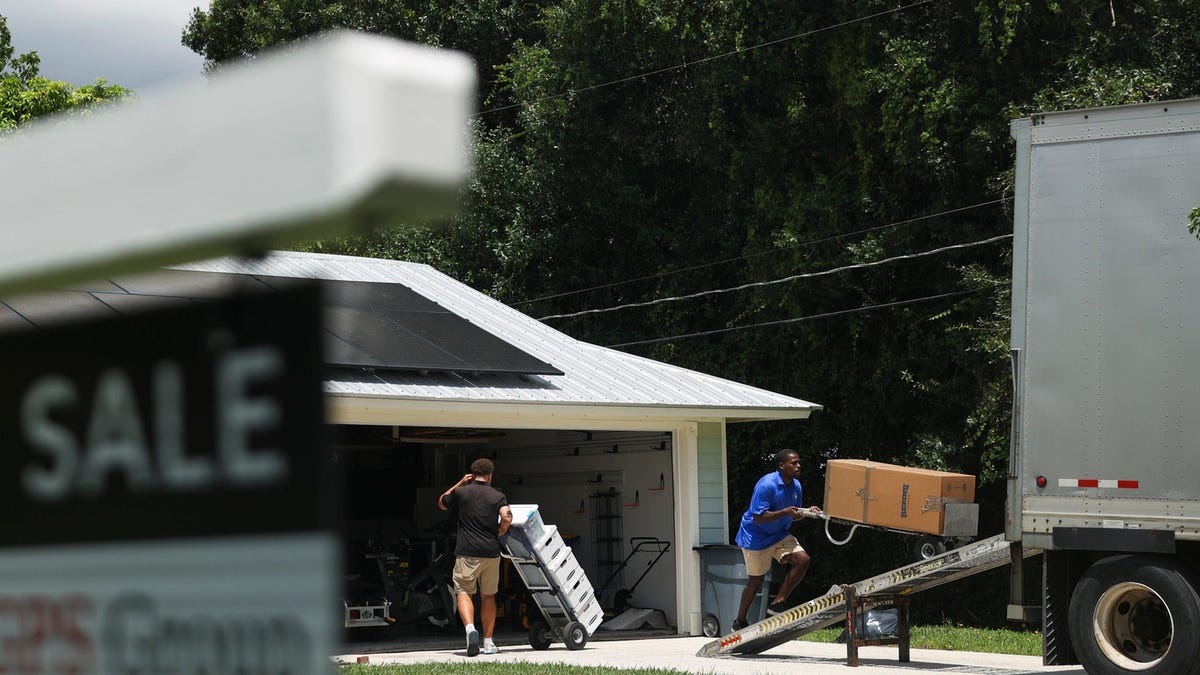
Watch Outer Banks home put on dolly, moved from eroding tides
A waterfront home was put on a giant dolly and temporarily moved 60 feet amid coastal erosion in Buxton, North Carolina.
Millions of Americans move to a different state each year, and they often forget to update their estate planning documents which can wreak havoc on their plans, experts said.
Only 24% of Americans have a will, according to a 2025 Caring.com survey of more than 2,500 adults. Worse, nearly a quarter of respondents haven’t updated their estate planning documents since origination, and 11% have moved away from the place they first had their estate drawn up, the poll said.
Inheritance, health care directives and powers of attorney (POAs) laws can vary significantly from state to state. If your estate documents don’t comply with laws in the state where you live, they may not be enforceable and your best laid out wishes may end up ignored, experts said. Differences in laws can also affect income tax, state estate or inheritance tax, and marital property, making the plan not as efficient and favorable to your heirs.
“Documents that might be relied on in time of need — a healthcare surrogate, living will and POA — are creatures of state statute,” said Tasha Dickinson, trusts and estates lawyer at Day Pitney.
Do I need a whole new set of estate planning documents?
There’s no need to go to the shredder, experts said. Legal documents like wills are valid from state to state, but from a practical perspective, it may be worthwhile having a lawyer in your new state review them.
“There are a lot of nuances in state laws that may require attention,” Dickinson said. She recommends ancillary documents like powers of attorney get updated.
What are examples of things to keep in mind?
Here are some estate planning items to keep in mind, experts say:
Property. “There’s a big difference between community property state laws and non-community property state laws,” said Patrick Simasko, elder law attorney and financial adviser at Simasko Law. “It’s a really good idea to sit down with a lawyer and have those documents reviewed and make them comply.”In community property states, both spouses have equal ownership rights to all income and assets and debt acquired during the marriage. When one spouse dies, the surviving spouse automatically receives the other half. A house is revalued at the fair market value, or gets a full step up, so there’s no capital gains tax if sold immediately. Nine states — Idaho, New Mexico, Texas, California, Arizona, Wisconsin, Nevada, Louisiana, and Washington – have community property laws.In non-community property, or common law, states, any property or debt acquired during the marriage is owned by the spouse who obtained it and can be left to anyone the owner chooses. If the house is jointly owned by the couple, the surviving spouse will inherit the house, but only the deceased spouse’s half gets a step-up in value.
Once assets are community property, they generally stay as such, even if the couple moves to a separate property state unless couples actively make a change, according to JP Morgan. Conversely, property owned by a married couple relocating from a common law state to a community property state will eventually become quasi-community property, which is basically community property, it said.
Powers of Attorney and Advance Directives. Your documents should remain valid, but states typically have their own statutory and specific forms. “If you need a decision made for you, you wouldn’t want family members potentially arguing with a medical professional about whether they have authority under (an unfamiliar, out-of-state) document,” Dickinson said.Executor of will. Your will should remain valid from state to state, but states may have their own rules on who can serve as the executor of the will. For example, if you moved to Florida and named a non-Florida resident as executor or personal representative, that person must be a relative or be disqualified. “If you didn’t name anyone else who qualifies, then that’s a problem,” Dickinson said.
Medora Lee is a money, markets and personal finance reporter at USA TODAY. You can reach her at mjlee@usatoday.com and subscribe to our free Daily Money newsletter for personal finance tips and business news every Monday through Friday morning.

